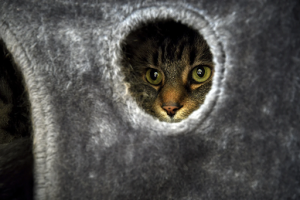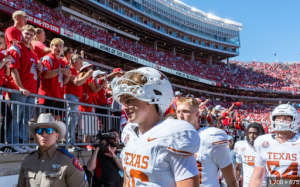As of now, only some colleges allow pets in dorms. Even with their positive contribution to mental health, few universities think it’s worth the hassle. Standouts include MIT, Eckerd College in Florida, and some others.
MIT allows cats, but only in specific dorms, and one must get consent from all roommates on the floor. Eckerd College, the self-described “No. 1 pet friendly college,” has an accommodating system for pets, for students’ well-being.
A growing number of colleges are adopting pet-friendly policies, catering to students who want to bring their pets with them when they move into their dorms.
Junior Ava Clark thinks that a companion can be particularly helpful when one is lonely, given that college can be far away. “It’s good for people who are out of state for college,” Clark said. “You’re so far away from home and you want to keep something with you.”
Even then, most colleges do not allow the policy, and they have good reason to, with all of the challenges that arise when animals and humans coexist. A not insignificant amount of the population is allergic to either cats or dogs, and a pet friendly dorm would not be an option. Even in colleges where pets are allowed, they’re only permitted to be in designated pet-friendly dorms.
One solution could be to only allow some species, as Clark suggested. “Maybe all dogs that you have with you need to be hypoallergenic,” Clark said. “So none with dander or anything like that.” No dog is completely hypoallergenic, but it could make students feel better about a space with pets in it.
Many other arguments against pets in dorms include calling pets a distraction, and a burden to those who need to use their time to focus on studying. A pet has to have its needs met. Vaccinations, feeding, and grooming all take time, effort, and money to do, and college students often don’t have a lot of each of those things to spare for another living being.
“I feel like it would be too much of a responsibility to balance keeping their grades up and keeping a pet around,” Junior Charles Gibson said. He argued that although sometimes animals are necessary, like in the cases of service animals and the like, it can be harmful when a student can only provide so much attention. “I don’t want a pet to go through that neglect,” Gibson said.
Not to mention, to properly care for an animal it needs to exercise and socialize as well. Taking care of an animal could be a drain on money and lower grades for students already finding difficulties in college.
On the other hand, pets have such a profound and proven impact on mental health that for some, it’s worth choosing a place like Eckerd. In an interview with the Associated Press, Sophie Nocera, a senior at Eckerd, remarked that pets are so ingrained in dorm life that their names are often better known than the students. When Nocera struggled with the decision to change her major, her dog, Zuko, was a vital part of emotional support. “I remember coming back to my dorm and just melting to the floor, and Zuko was right there. And I remember thinking, whatever happens tomorrow, I’m going to wake up, and I’m going to take him to the dog park. And, we’re going to go play fetch regardless of what my major is,” Nocera said.















